Google is undertaking a huge project with their brand-new health knowledge graphs that are now being shown in the search results. Google says there’s concern where people are doing health and medical related searches yet are unable to find the concrete information they’re looking for. Google aims to make it easier with the addition of these new eye-catching knowledge graphs.
Unfortunately, if you are a webmaster of a health or medical related site, you could find users will begin clicking these knowledge graphs for more information rather than clicking your site. While many health queries are dominated by the likes of the CDC and Mayo Clinic, some smaller sites do very well, especially for long tail and less common health problems and issues.
Google has already began rolling out these new health knowledge graphs and they do look significantly different from any knowledge graph we’ve seen until this point.
Here’s an example of the knowledge graph for measles.
And here is a closeup of the knowledge graph.
It can also be expanded multiple times for additional information.
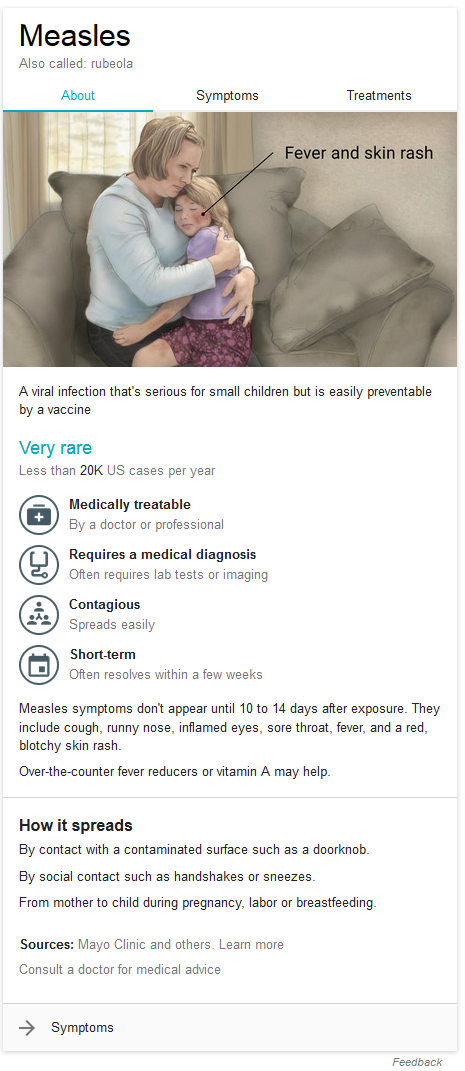
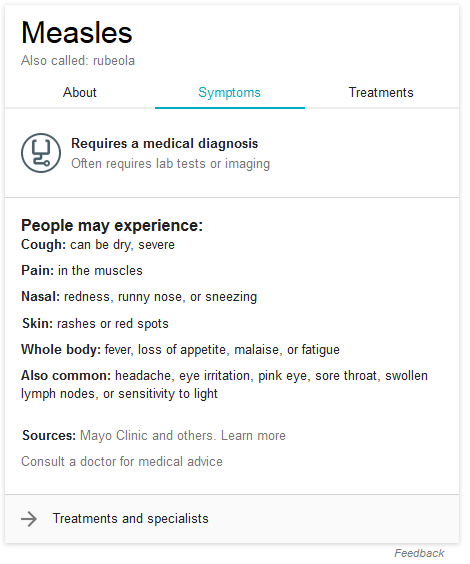 It is unclear just how many health-related queries Google will show this new style of knowledge graph for. So if you have a health-related site, this is definitely something you should be concerned about, as knowledge graphs can appear above the organic search results, and push those organic search results lower on the page. These health-related knowledge graphs that appear on the right-hand side of the page are primarily in full color and definitely draw the eye.
It is unclear just how many health-related queries Google will show this new style of knowledge graph for. So if you have a health-related site, this is definitely something you should be concerned about, as knowledge graphs can appear above the organic search results, and push those organic search results lower on the page. These health-related knowledge graphs that appear on the right-hand side of the page are primarily in full color and definitely draw the eye.
Having one of these new health knowledge graphs does not exclude the search result from having ads show up. While the search term “measles” had no ads, the search term “ebola” had plenty.
The new knowledge graphs are not limited to life-threatening diseases. Even a “sprained ankle” brought up one of the new knowledge graphs.
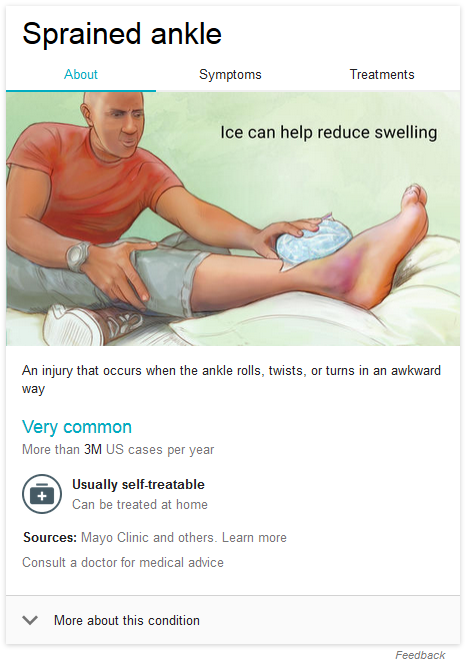 They have also added a page citing where they are getting their information from. The knowledge graph shows “Mayo Clinic and others”, with the link going to this page. Google states they have a team working on it.
They have also added a page citing where they are getting their information from. The knowledge graph shows “Mayo Clinic and others”, with the link going to this page. Google states they have a team working on it.
We worked with a team of medical doctors (led by our own Dr. Kapil Parakh, M.D., MPH, Ph.D.) to carefully compile, curate, and review this information. All of the gathered facts represent real-life clinical knowledge from these doctors and high-quality medical sources across the web, and the information has been checked by medical doctors at Google and the Mayo Clinic for accuracy.
The fact Mayo Clinic is involved is interesting, as it will definitely result in a loss of traffic as well as hit their Google AdSense revenue as a result. They currently run multiple Google AdSense ads on their pages – many pages that would have received visitors, and subsequent ad clicks, if the Google health knowledge graphs weren’t added. While the knowledge graph does include a link to their page for the health query searched for, the traffic from that wouldn’t be as high as from the regular search results without the knowledge graph.
Most of the knowledge graphs I saw had this similar style of imagery, so they are opting not to use photographs, which can sometimes be graphic depending on the health query used. However, some do not have any images at all, such as this one.
Blog post also drops information that one every 20 searches on Google is the search for health-related information. And yes, this is the reason why there are so many spamming health sites, especially since there is a lot of money to be made selling all kinds of legitimate and not-so-legitimate health products.
This features first being rolled out in the United States in English only, although it seems users outside the US can view them on Google.com. They do want to extend this to other countries and languages in the future, as well as cover more health conditions.
Jennifer Slegg
Latest posts by Jennifer Slegg (see all)
- 2022 Update for Google Quality Rater Guidelines – Big YMYL Updates - August 1, 2022
- Google Quality Rater Guidelines: The Low Quality 2021 Update - October 19, 2021
- Rethinking Affiliate Sites With Google’s Product Review Update - April 23, 2021
- New Google Quality Rater Guidelines, Update Adds Emphasis on Needs Met - October 16, 2020
- Google Updates Experiment Statistics for Quality Raters - October 6, 2020
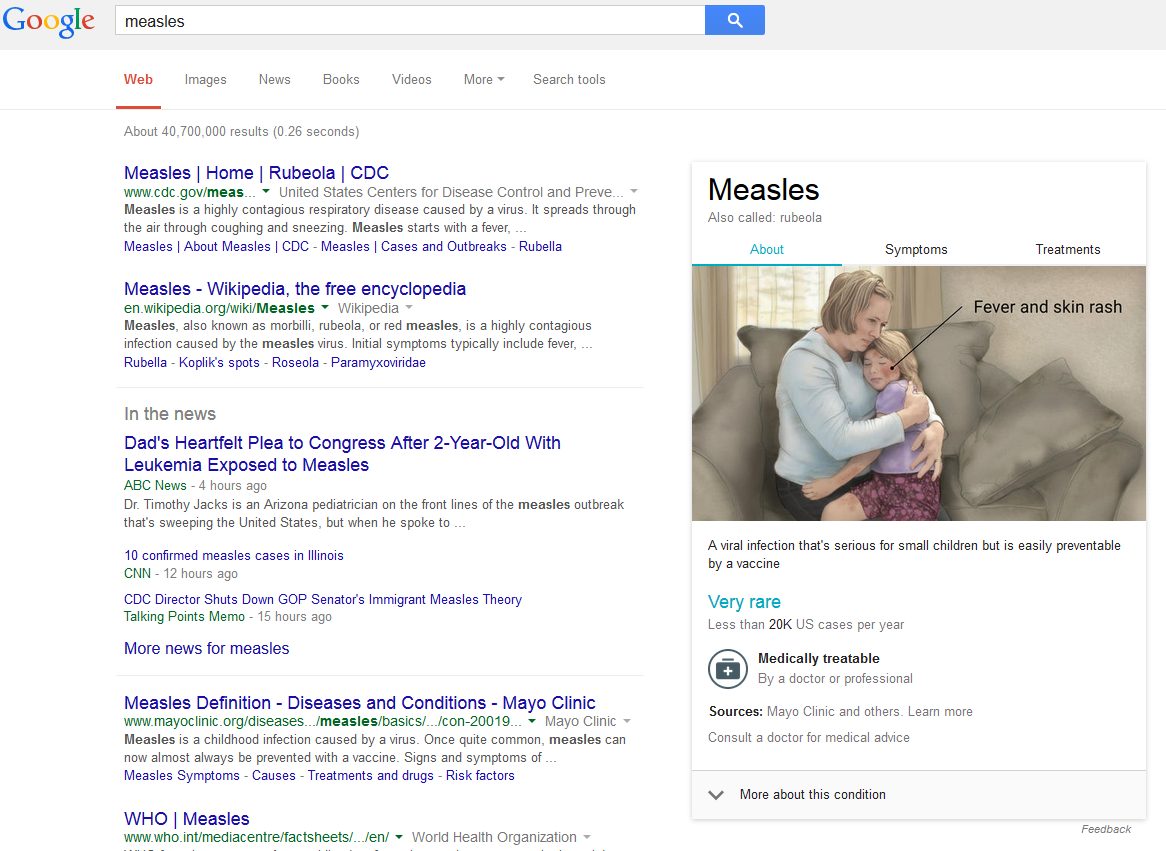
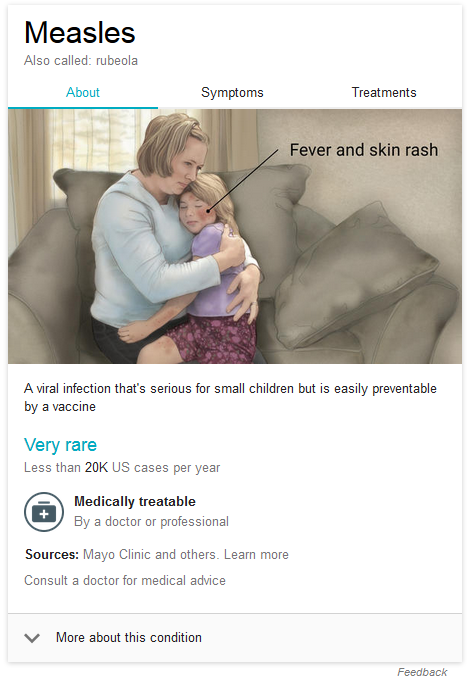
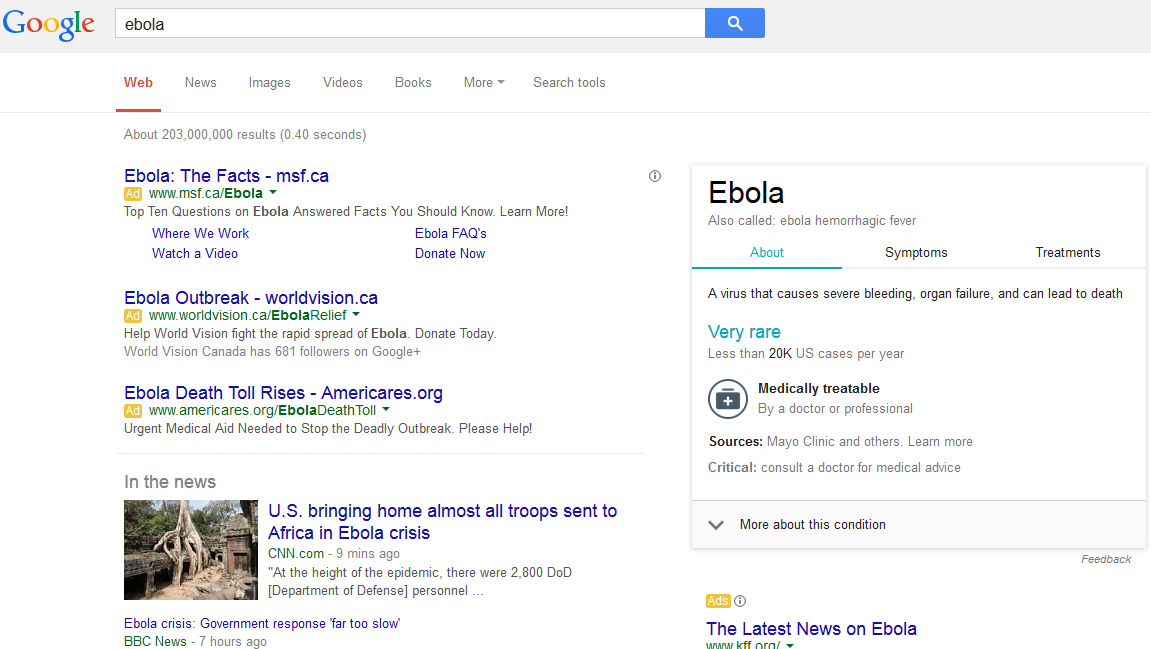
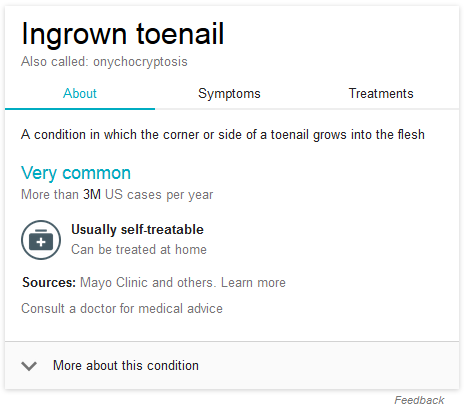
Alan Bleiweiss says
So now Google finds itself being capable of putting enough trust in a handful of doctors from various sources to be chipping away at the “generic health information” field.
While I am glad they’re at least (apparently) choosing high visibility doctors, that is a dangerous game overall. When you do various other searches (such as looking for menus) you get some truly crappy results from some of the most dubious “sources” on the web.
Hopefully they won’t ever allow THAT to happen with health answers.
As for sites losing traffic, this type of information has long since become commoditized (like song lyrics) and any traffic loss really isn’t any type of traffic that for the most part carried any significant conversion related value other than “free money from people clicking on crappy adsense ads’. Which never should exist on a health site in the first place.
Because wow.